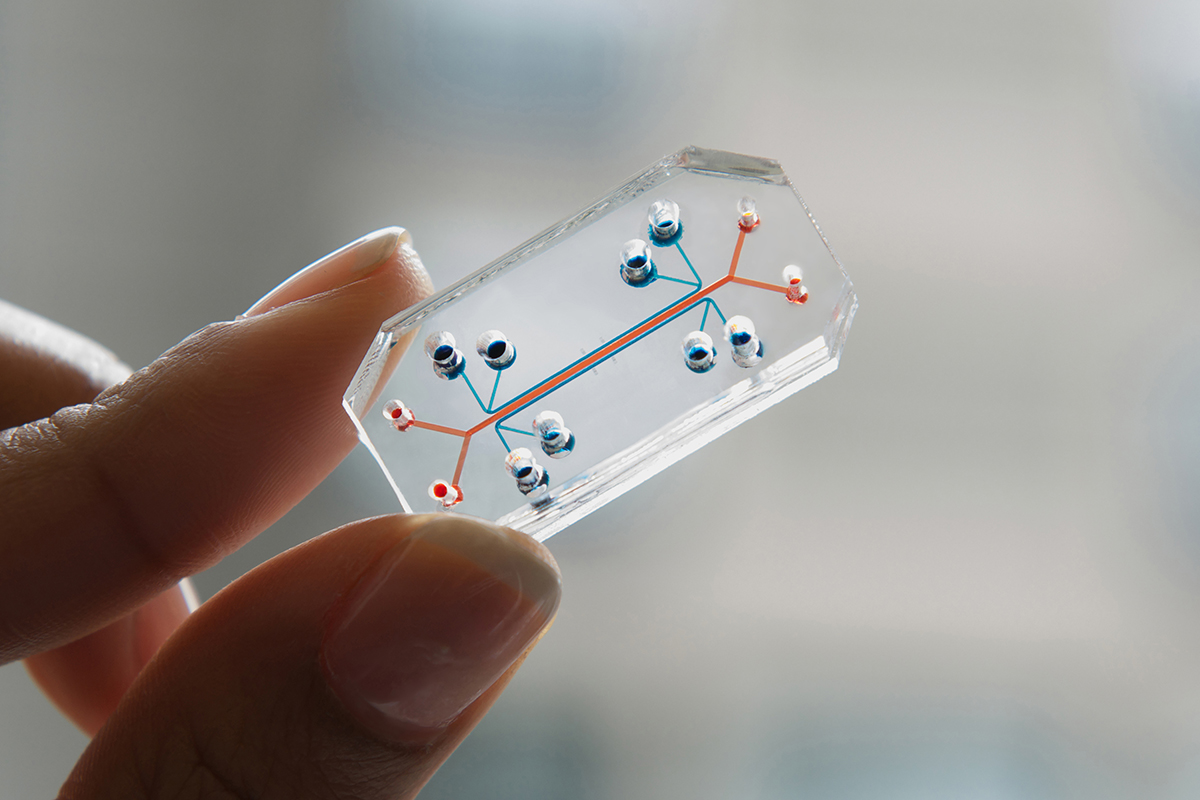Emulate Replicates Human Organs on Chips

Photo provided by Emulate Inc.
A Boston-based company is aiming to replicate the human body on microchips. Sound a little Frankensteinian? Don’t worry—the plan isn’t to develop robotic humans, but rather to build a system that could make drug and product testing better, and animal testing obsolete.
To make its products, Emulate, Inc. uses a technology called Organs-on-Chips, which was developed at the Wyss Institute for Biologically Inspired Engineering at Harvard University. Currently, the company has chips that simulate the human lungs, liver, intestines, kidney, and the blood-brain barrier. Organs including the skin, muscles, and eyes are in development.
“It’s really a beautiful blend of design, engineering, and biology coming together in these micro-engineered chips,” says President and Chief Scientific Officer Geraldine Hamilton. “We line these chips with living human cells, and then using engineering techniques, we are able to create a dynamic system. So, we have blood [running] through these chips, just like you have blood flowing through your organs.”
Emulate hopes to eventually link all the organ chips in fluid, just like the body’s natural organs are connected, to form an integrated system that could be used without engineering expertise. Once the system is in place, it could be used for testing new products in the pharmaceutical, cosmetic, and food industries, hopefully sans animal subjects.
Instead of researchers performing tests on rats or mice, scientists using the chip network could watch how products or drugs affect the body on a cellular level, glimpsing a window into human biology. It could also provide insight into disease mechanisms and lead to new therapies and safer, better-tested drugs. Eventually, the goal is to put a patient’s own cells into the system to study which therapy or drug may work best for an individual’s health.
Already, Emulate is collaborating with Johnson & Johnson, Merck Co., and other pharmaceutical companies.
“Right now, if you want to test if a chemical, drug, or food is safe or whether it works, you really have two choices. You have cells in a dish, which really don’t resemble how they behave in the body, or animal testing,” Hamilton says. “There is a tremendous need for a more human-relevant system. This is what the Organs-on-Chips technology provides.”


